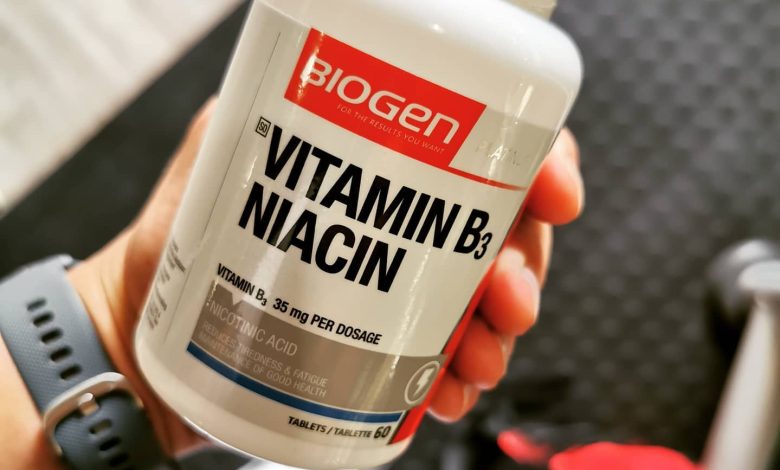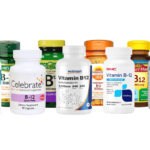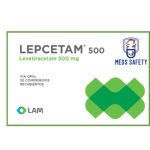Is It Safe To Take 500mg Of Niacin A Day?

Niacin, also known as vitamin B3 or nicotinic acid, is a crucial nutrient required for various bodily functions. It exists in several different forms, each with its own unique properties and functions within the body. The main active forms of niacin are nicotinic acid, niacinamide (nicotinamide), and inositol hexanicotinate.
Niacin plays several important roles in the body. It is essential for overall health and well-being. Here are some of the key functions of niacin:
- Energy Production: Niacin is a vital component in the process of converting carbohydrates, fats, and proteins from the foods we eat into usable energy for the body. It helps produce coenzymes NAD (nicotinamide adenine dinucleotide) and NADP (nicotinamide adenine dinucleotide phosphate), which are involved in cellular energy metabolism.
- DNA Repair and Cell Function: Niacin plays a role in DNA repair and cell signaling, contributing to healthy cell function and replication. It supports the maintenance of genetic material and ensures proper cellular communication and function.
- Cholesterol Regulation: Niacin has been shown to help raise high-density lipoprotein (HDL) cholesterol levels, commonly referred to as “good cholesterol,” and lower low-density lipoprotein (LDL) cholesterol and triglyceride levels. This cholesterol-modifying effect can reduce the risk of cardiovascular diseases.
- Cardiovascular Health: Beyond its impact on cholesterol levels, niacin supports cardiovascular health by promoting healthy blood circulation and maintaining the integrity of blood vessels. It aids in vasodilation, which helps keep blood vessels flexible and can reduce the risk of hypertension.
- Nervous System Function: Niacin is essential for maintaining a healthy nervous system. It supports the proper functioning of nerve cells and is involved in the synthesis of neurotransmitters, which are essential for transmitting signals between nerve cells.
- Skin Health: Niacin is beneficial for the skin and can help treat various skin conditions such as acne and rosacea. It enhances the skin barrier function, reduces inflammation, and promotes a healthy complexion.
- Digestive Health: Niacin is involved in the production of stomach acid, which aids in the digestion of food and nutrient absorption. It also plays a role in maintaining a healthy digestive system.
- Red Blood Cell Formation: Niacin is required for the synthesis of hemoglobin, the protein responsible for carrying oxygen in red blood cells. Adequate niacin intake is essential for preventing anemia and ensuring proper oxygen delivery throughout the body.
- Brain Health: Some studies suggest that niacin may have a positive impact on cognitive function and brain health. It is involved in various neurological processes and may play a role in protecting against certain neurodegenerative diseases.
While it is generally safe and beneficial at recommended doses, questions arise about the safety of taking 500mg of niacin daily. This article aims to explore the potential risks and benefits of such a dosage.
Dosage Forms
Niacin is available in various dosage forms, allowing individuals to choose the most suitable method of administration based on their needs and preferences. The common niacin dosage forms include:
1. Capsules and Tablets:
• Niacin is commonly available in the form of oral capsules and tablets.
• These dosage forms are typically taken with water and can be easily incorporated into daily supplement regimens.
2. Extended-Release (ER) or Sustained-Release (SR) Tablets:
• Extended-release or sustained-release niacin tablets are designed to release the niacin slowly over an extended period, providing a gradual and continuous supply of the vitamin into the bloodstream.
• This type of formulation is often used to reduce the occurrence of the “niacin flush,” a side effect associated with immediate-release niacin.
3. Liquid and Syrups:
• Niacin can be found in liquid form or as part of syrups, which are particularly useful for individuals who have difficulty swallowing solid dosage forms.
• Liquids and syrups offer flexibility in dosing, as they can be easily adjusted according to individual needs.
4. Niacinamide Creams and Lotions:
• Niacinamide, a form of niacin, is commonly used in topical skincare products such as creams, lotions, and serums.
• These formulations are applied directly to the skin and are known for their benefits in improving the skin barrier function, reducing redness, and treating certain skin conditions.
Understanding Niacin Dosages
The recommended daily allowance (RDA) of niacin varies with age, gender, and life stage. For adults, the RDA ranges from 14 to 16 mg per day for men and women, respectively. At this dosage, the risk of adverse effects is minimal, and most individuals meet their nutritional needs through a balanced diet. However, higher doses of niacin are often used therapeutically to address specific health conditions, such as high cholesterol and triglycerides.
Benefits of High-Dose Niacin
Some studies have suggested that higher doses of niacin may help raise HDL (good) cholesterol levels and lower LDL (bad) cholesterol and triglycerides, thereby reducing the risk of cardiovascular disease. Additionally, niacin is sometimes prescribed to improve circulation, support brain health, and assist in treating certain skin conditions. It is important to note that such high doses are typically prescribed under medical supervision and for specific medical reasons.
Is It Safe To Take 500mg Of Niacin A Day?
No, while niacin is generally safe, taking 500mg or more of niacin daily may lead to an increased risk of adverse effects. The most common side effect is known as the “niacin flush,” characterized by redness, warmth, and itching of the skin. This occurs due to the dilation of blood vessels and is generally harmless but can be uncomfortable. However, with continued use, many individuals develop tolerance to the flush.
More concerning is the potential for liver damage at higher doses (3 grams per day). Niacin can put strain on the liver, and in some cases, it may lead to hepatotoxicity. This risk is higher when taking extended-release forms of niacin, which have been associated with a greater incidence of liver problems. For this reason, it is crucial to have liver function regularly monitored when taking high-dose niacin supplements.
Other possible side effects of excessive niacin intake include gastrointestinal issues such as nausea, vomiting, and diarrhea. Additionally, some studies have suggested a potential link between high-dose niacin and an increased risk of glucose intolerance or insulin resistance, which can be problematic for individuals with diabetes or prediabetes.
Conclusion
In conclusion, while niacin is an essential nutrient that offers numerous health benefits, taking 500mg of niacin a day is not generally recommended without medical supervision. The standard recommended daily allowance of niacin can easily be met through a balanced diet. Higher doses are typically prescribed for specific medical reasons and should only be taken under the guidance of a healthcare professional.
If you are considering taking high-dose niacin supplements, it is essential to consult with your healthcare provider to discuss potential risks and benefits. They can help determine if such supplementation is necessary and monitor your liver function and overall health throughout the process. Remember that individual responses to supplements can vary, and what may be safe for one person could pose risks to another. Prioritizing a healthy diet and lifestyle remains the foundation for supporting overall well-being.





